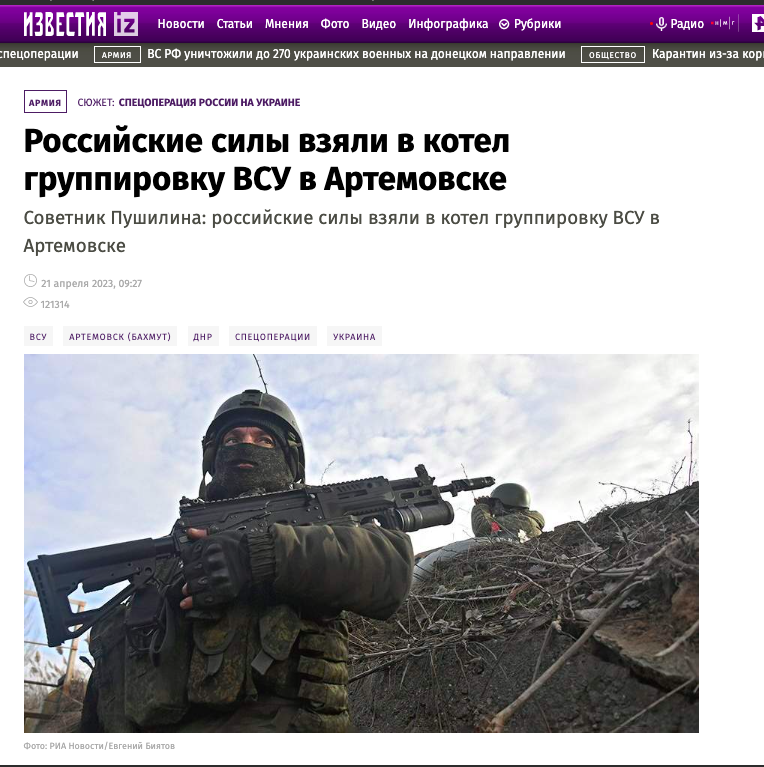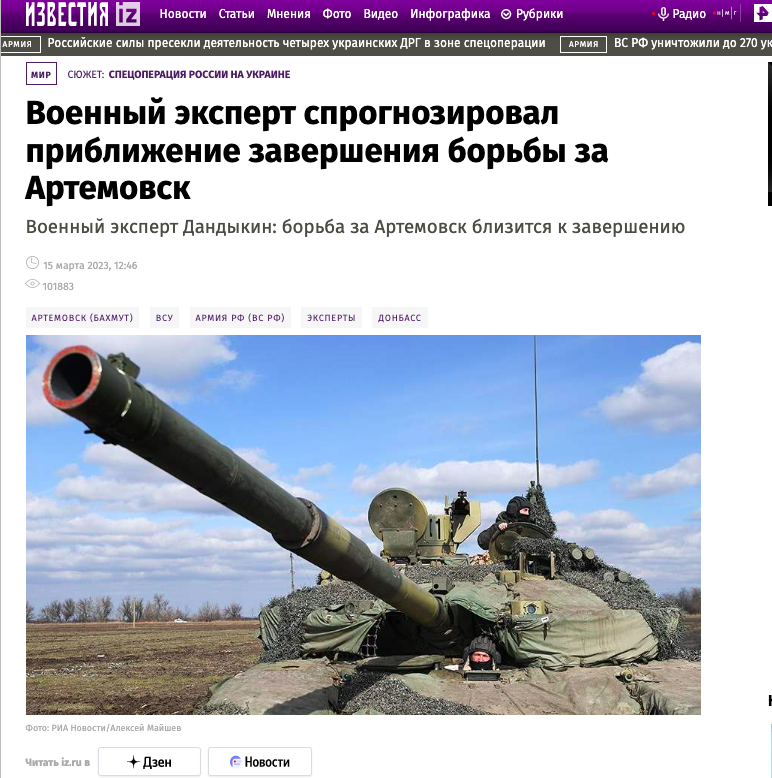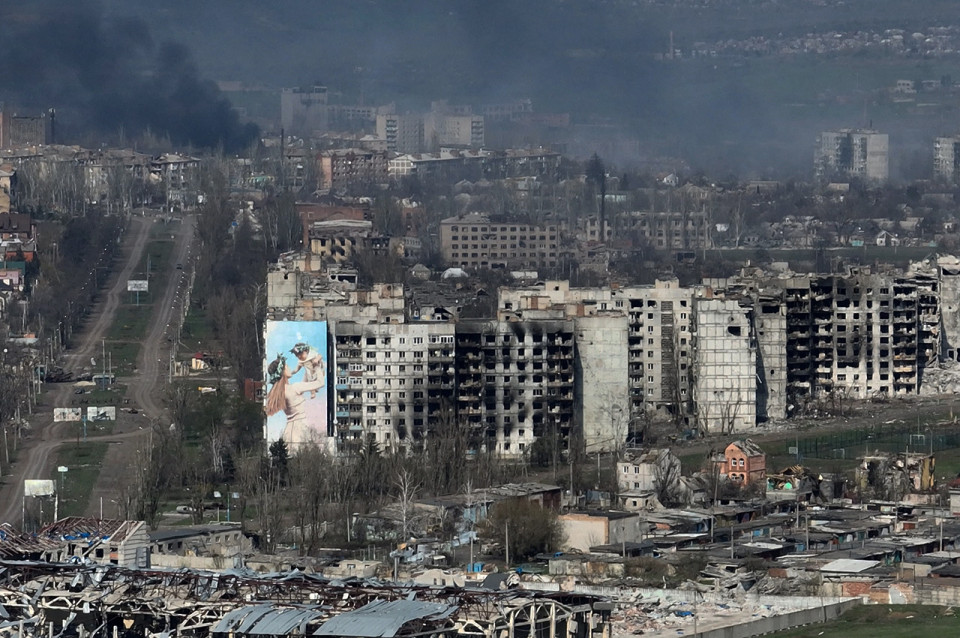
What Russia has tried to sell as a grand victory has turned out instead to be an illustration of the Russian military's problems and feuding within the Russian establishment.
The fierce fight for Bakhmut has gone on for more than 9 months. Now Russia presents the alleged capture of the town as a grand achievement, while Ukrainian authorities claim that their soldiers still hold ground within the city.
It is worth looking at how Russian propaganda has reported about this hotspot over the past months.
The Russians often contradict themselves when reporting on the "progress" of the so-called "special military operation" in Ukraine. Given that the aggressor has failed to make any major gains in Ukraine since the initial stage of the invasion, Bakhmut was given an important symbolic role.
Lysychansk and Sievierodonetsk in Luhansk Oblast were the last big towns Russia was able to capture in Ukraine, and they were taken almost a year ago. On the other hand, Russia has suffered major defeats in northern Ukraine, Snake Island, and in the liberation of parts of Kherson and Kharkiv Oblasts.
It is worth noting that Russian propaganda often calls Bakhmut by its Soviet name Artyomovsk in order not to recognize Ukraine's decommunization campaign.
In January and April, Russian media wrote breathlessly about the possibility of their forces encircling Ukraine's in Bakhmut. This did not happen.


The head of Wagner mercenary group Yevgeny Prigozhin and numerous political Russian commentators announced the capture of Bakhmut multiple times in March and April. This did not happen.


While it was difficult to keep up with the constant promises of the imminent seizure of Bakhmut, political commentator Yurii Podoliaka, who defected from Ukraine to Russia in 2014, compared the significance of Bakhmut for Ukraine with that of Stalingrad for Hitler (hinting that this "decisive" battle would lead to a breakthrough for Russia in Ukraine).
At the same time, the fighting for Bakhmut revealed a serious internecine conflict between Prigozhin on the one hand and the Russian Ministry of Defense and the General Staff on the other. Prigozhin did everything he could to present his Wagner Group as a highly efficient fighting force in contrast to an incompetent and corrupt regular Russian army, presumably to improve his domestic political standing.
Thus, even if Russian claims about finally capturing Bakhmut are true, it is rather an entirely pyrrhic victory. Neither side is revealing their casualties, but at the G7 summit in Japan, American President Joe Biden said that Russia had suffered 100,000 killed and wounded in the fight for the city, which is now nothing but charred and powderized ruins.
It is worth remembering that Bakhmut had historically served as a cultural center of Donbas and an important place for the local Ukrainian national movement.
The town of 70 thousand residents was also famous for its sparkling wine factory, one of the biggest producers in Ukraine and Eastern Europe using traditional champagne methods.
Nearby the city was a popular tourist destination, the Soledar salt mine, which held an underground city of tunnels as deep as 200--300 meters below ground where underground concerts and even football matches took place.
Thanks to the arrival of the "Russian world," all of this is now gone.
 The 160-year old building of the Bakhmut Choral Synagogue survived two world wars and Nazi occupation, but was destroyed by Russians in January 2023. Photo: Wikipedia
The 160-year old building of the Bakhmut Choral Synagogue survived two world wars and Nazi occupation, but was destroyed by Russians in January 2023. Photo: Wikipedia
 The celebration of 450th anniversary of Bakhmut in 2021. Photo: www.bahmut.com.ua
The celebration of 450th anniversary of Bakhmut in 2021. Photo: www.bahmut.com.ua
 Ruins in the center of Bakhmut. Photo: AFP
Ruins in the center of Bakhmut. Photo: AFP
 Photo: Reuters
Photo: Reuters
